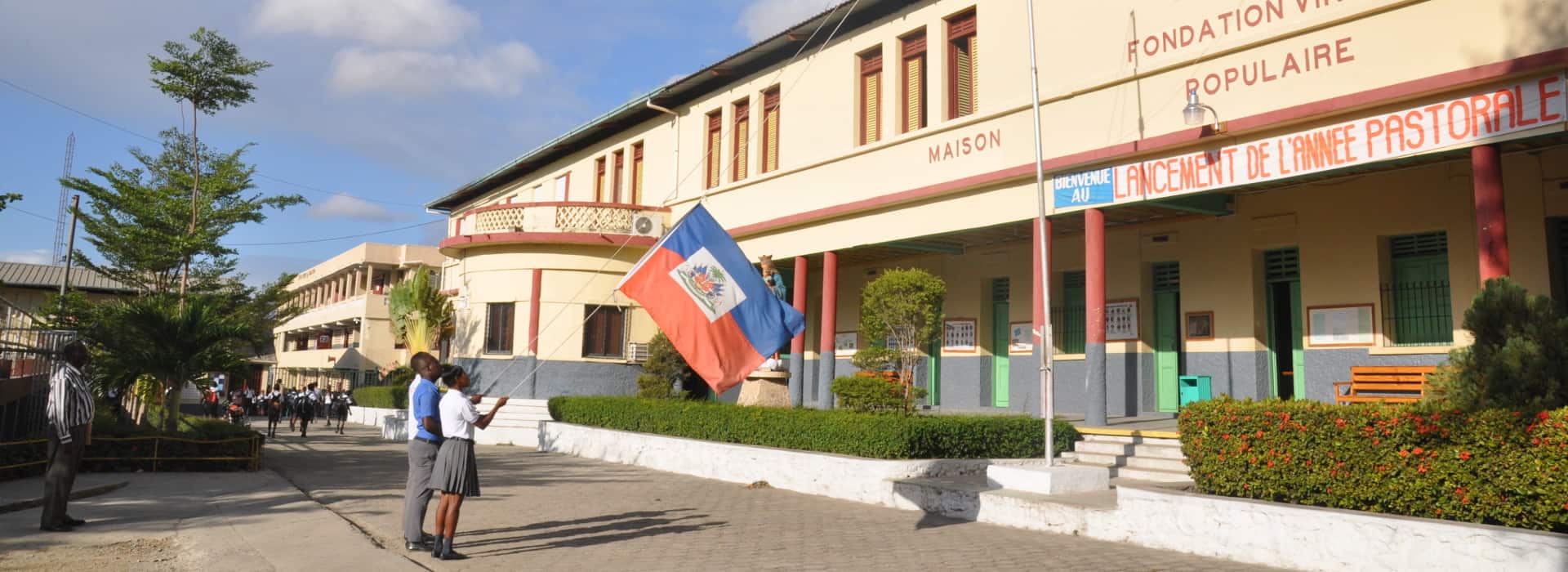A Visit to Fondation Vincent
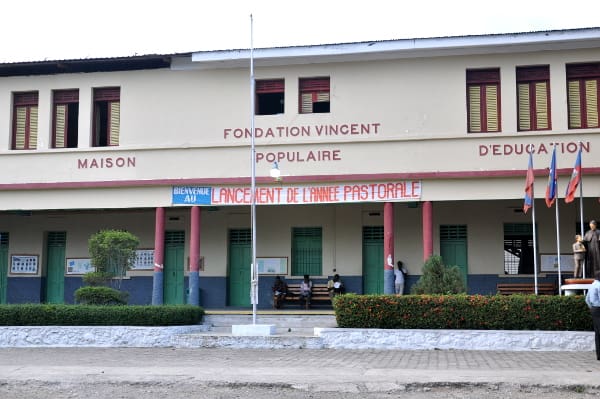
A 6-hour drive from Port-au-Prince, resting on the northern coast of Haiti, one finds the country’s second city, Cap-Haïtien. Once the capital of the French colony of Saint-Domingue, and later the seat of government for the Kingdom of Northern Haiti, today the city is a bustling metropolis of 200,000. Driving into the city, colorful tap-taps (shared transport) fill the streets while vendors sit selling their wares in the shade of the buildings. It’s easy to be distracted driving into town; however one can’t miss the images of Don Bosco, painted along one section of the road, quietly welcoming all who pass by. We have finally arrived at the Salesian’s Fondation Vincent.
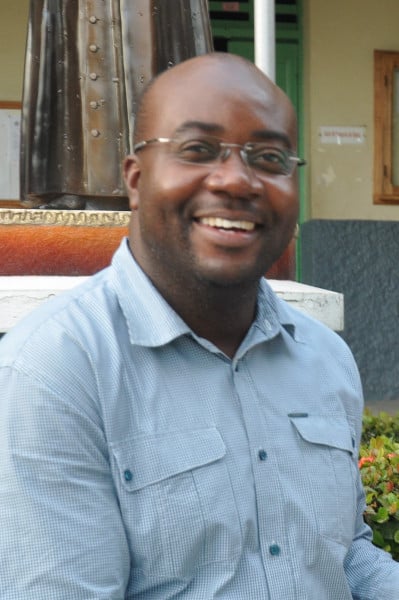
The Salesians arrived in Cap-Haïtien in 1955, at the request of the Haitian government, in order to take over management of the Fondation Vincent educational center. Over 60 years later, the fruits of the Salesian presence are clearly evident. Thousands of youth frequent the center every day for primary and secondary education, vocational training, as well as sports and youth ministry. The institution has a dynamic air about it as young people fill its corridors and alleyways. Père Lex Florival, director of the vocational school, has agreed to give us a short tour of one part of this bustling campus: the workshops and the farm where a new generation of tradesmen are being formed.
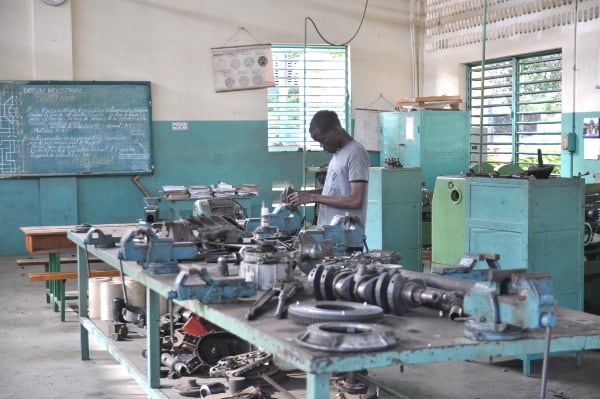
Père Lex first brings us to the machine shop, and he shares an enthusiasm for the trade which hints at the fact that he too studied industrial mechanics with the Salesians. Rows of industrial lathes line one side of the workshop, while worktables filled with heavy clamps stand at the other end. The machine shop is not just a place to teach and learn; rather it plays an active role in industrial landscape of the North of the country. When a part breaks at one of the nearby factories, they know where to turn. The machine shop of Fondation Vincent does quality work, and constant orders keep everyone busy. This is all a great witness to the standards of the professors, who also happen to be former students of the center themselves.

As we head over to the carpentry workshop, we first take peek into the metalworking area. New gates and window bars are being fabricated, and students carefully measure each piece before cutting the metal segments. One of the professors is busy at work, forming a piece of steel on a nearby anvil, laboring in the shadows of an industrial press and welding equipment. In the carpentry workshop it’s clear that the students are meticulous in completing their assignments as well. A new dining room set, bed frame, dressers, cabinets, and doors are arranged around the perimeter of the room, in various stages of completion. The students have much to be proud of here. Père Lex relates that the students recently they won a competition sponsored by the Dominican Republic for their craftsmanship, and there are ample orders from various organizations for their products. For example, we take a look at new set of shelves, just having received a first coat of stain, that are destined for a nearby university. Soon the products of the carpentry workshop will also be displayed at a showroom that is now under construction at the center.

The last stop on our tour is the sprawling agricultural school. Students of the agricultural program study modern practices and technology in agriculture and animal husbandry. However, it is hard work, as everything is done by hand. A walk through the farm brings all kinds of surprises: expansive fields of bananas; plots of peppers and cabbage; rabbits, goats, cows, chickens, pigs, ducks, and geese. There is even a pool that Père Lex hopes will once again will be utilized to raise fish, an expensive commodity in the country. All this work is part of a philosophy that Père Lex explains as “learn and produce.” Real production helps to keep the school functioning financially, and it also instills a new mindset in the students that learn there.
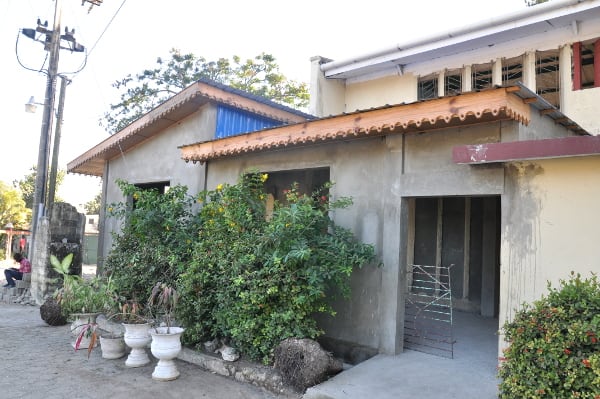
While there is much more to see, our tour has come to an end. 200 students are being formed for a new Haitian future. However, their contribution to the country’s development clearly is beginning now.

